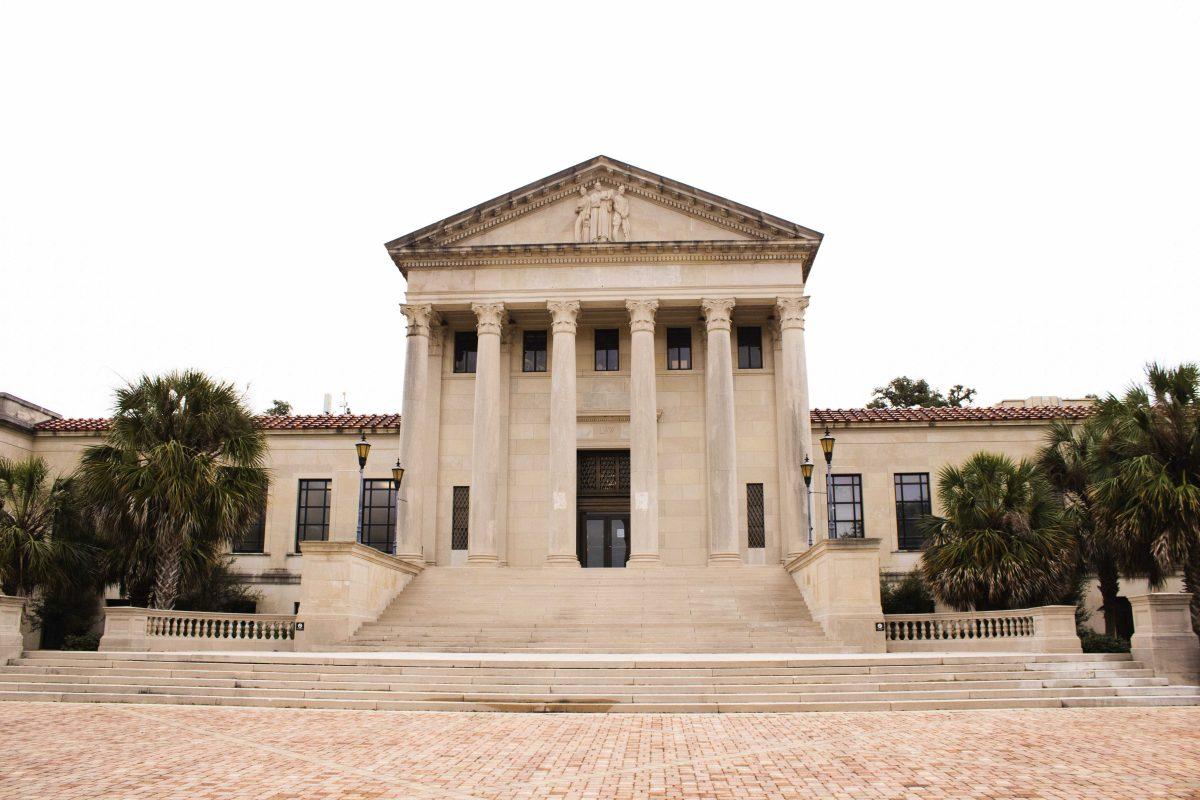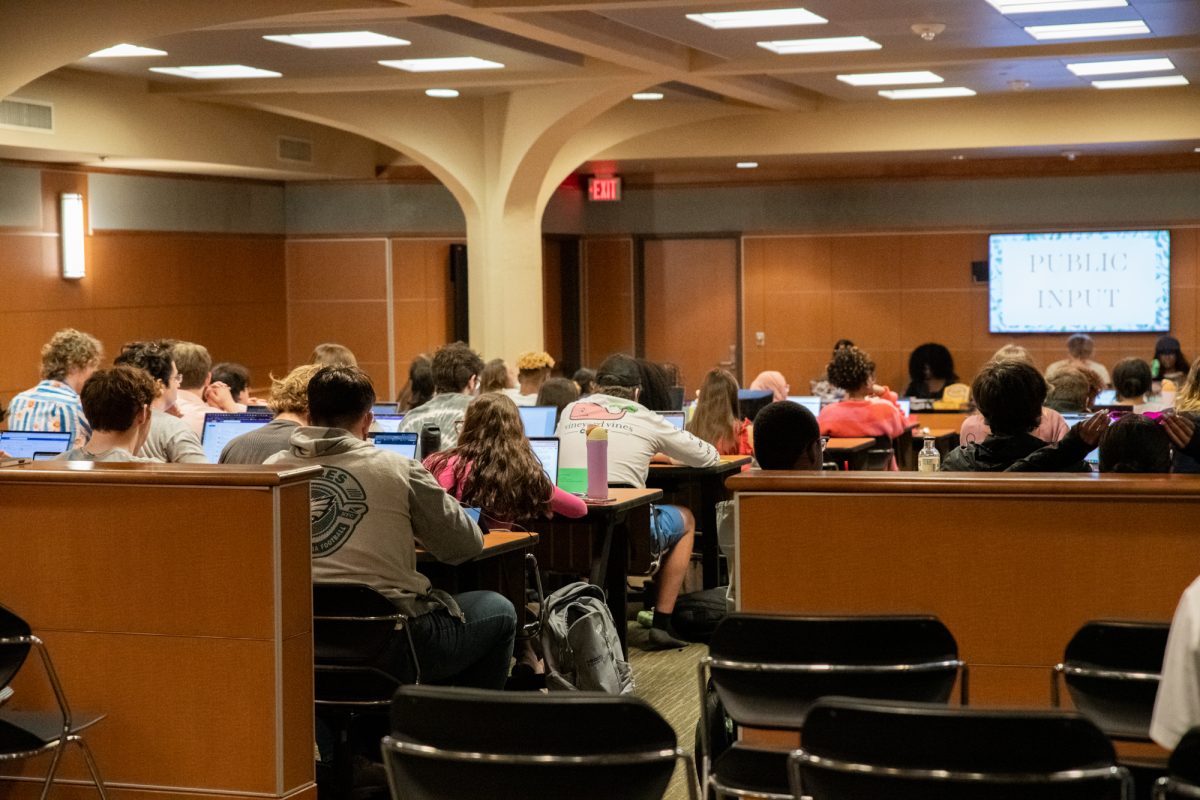LSU Student Government’s Judicial Branch may have been overshadowed by recent contested executive and legislative elections, but it plays a critical role in SG at the University.
The Judicial Branch includes nine justices, two public defenders, a solicitor general and a clerk of court. Justices have a wide range of responsibilities that extend past the realm of SG.
Accounting senior and SG Chief Justice Andrew Chenevert said the court typically holds around two hearings and does three interpretations per year, but that can vary based on situations within SG. He said the court has been especially busy this semester due to the highly contested SG elections.
“We read [SG’s] governing documents and deliberate just like the Supreme Court would,” Chenevert said.
Chenevert said hearings yield binding outcomes, and any student can bring forth SG-related cases. Before hearings are conducted, the court asks involved parties or individuals to submit briefs about their cases, which is how most evidence is presented, and the solicitor general uses his or her investigative role to gather documents and conduct interviews.
Both sides can present opening statements or arguments, call upon witnesses, cross-examine witnesses and give closing statements. Justices may ask questions throughout the hearing.
The Judicial Branch includes two spots for students to serve as public defenders who represent a party during a hearing. Although it is recommended that students utilize SG’s public defenders, they can seek representation from other students outside of SG, including law students.
Chenevert said that once all sides have concluded the hearing process, the justices hold a closed deliberation, and a majority vote of justices is required to sustain a ruling.
“We argue from most senior to least senior with people being able to ask questions,” Chenevert said.
Chenevert said interpretations of SG’s bylaws or governing documents usually take around two hours to deliberate on when no hearing is conducted, and decisions resulting from interpretations are non-binding. He said the interpretation request, injunction request and complaint forms can be found on SG’s website under the Judicial Branch tab, and the forms can be used by all students at the University.
Political science junior and Deputy Chief Justice Nicholas Foster said the justices review SG’s governing documents yearly, regardless of the interpretations the court may have handled in a given year.
“All the justices basically sit around — they’re assigned a portion of the governing documents — [to] go through errors [or] parts where they’re not clear to try to change the language in a way that doesn’t change intent,” Foster said.
Chenevert said to confirm changes to the governing documents, a majority of the justices must vote in favor, then the changes must be confirmed by the Student Senate. He said most document reviews yield suggestions for changes, rather than decisions.
In addition to meeting on a bi-weekly basis, justices are required to sit in on either executive or legislative committee meetings, the University’s Parking Appeals Committee meetings or the Student Senate meetings each week.
“All the justices are required to be trained as university hearing panelists, which is through the Student Advocacy and Accountability process,” Chenevert said.
Chenevert said when students are charged with violating the Code of Student Conduct, someone from SAA meets with them to decide if they are responsible for their alleged violations, and an outcome is issued.
“If a student’s not happy with it, they are allowed to appeal to a university hearing panel,” Chenevert said.
Chenevert said the panel consists of a student panelist, who could be a justice, a faculty panelist and a chair, who can be either a student or faculty member. He said those cases are presented similarly to how the court conducts its hearings. Foster said the hearings can stem from violations of drug policies to plagiarism.
The Judicial Branch has also partnered with Campus Life to implement the Organizational Appeals Committee. Chenevert said cases brought to the committee can include campus organizations violating their own constitutions to, for example, improperly hold officer elections. Justices review the cases and interpret the organizations’ governing documents to issue non binding recommendations from a student’s perspective.
Foster said the branch has started to create a code of statutes this year in which justices will review previously passed SG bills and organize them in a way that allows future SG administrations to see how they were written and then amend or revise them if needed.
Chenevert recently accepted applications for the branch, and he said he will interview the nominees with the new SG president, William Jewell.
“It’s the president’s responsibility to nominate with the advice of the chief justice,” Chenevert said.
Once Jewell selects nominees, they will go through Student Senate’s Rules Committee. Nominees will then appear in front of the entire senate before being confirmed or sworn in.










